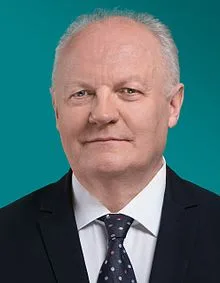
Age, Biography and Wiki
François Asselineau was born on 14 September, 1957 in Paris, France, is a politician. Discover François Asselineau’s Biography, Age, Height, Physical Stats, Dating/Affairs, Family and career updates. Learn How rich is He in this year and how He spends money? Also learn how He earned most of networth at the age of 66 years old?
| Popular As | N/A |
| Occupation | Civil Servant Politician |
| Age | 66 years old |
| Zodiac Sign | Virgo |
| Born | 14 September, 1957 |
| Birthday | 14 September |
| Birthplace | Paris, France |
| Nationality | France |
We recommend you to check the complete list of Famous People born on 14 September.
He is a member of famous politician with the age 66 years old group.
François Asselineau Height, Weight & Measurements
At 66 years old, François Asselineau height not available right now. We will update François Asselineau’s Height, weight, Body Measurements, Eye Color, Hair Color, Shoe & Dress size soon as possible.
| Physical Status | |
|---|---|
| Height | Not Available |
| Weight | Not Available |
| Body Measurements | Not Available |
| Eye Color | Not Available |
| Hair Color | Not Available |
Dating & Relationship status
He is currently single. He is not dating anyone. We don’t have much information about He’s past relationship and any previous engaged. According to our Database, He has no children.
| Family | |
|---|---|
| Parents | Not Available |
| Wife | Not Available |
| Sibling | Not Available |
| Children | Not Available |
François Asselineau Net Worth
His net worth has been growing significantly in 2022-2023. So, how much is François Asselineau worth at the age of 66 years old? François Asselineau’s income source is mostly from being a successful politician. He is from France. We have estimated
François Asselineau’s net worth
, money, salary, income, and assets.
| Net Worth in 2023 | $1 Million – $5 Million |
| Salary in 2023 | Under Review |
| Net Worth in 2022 | Pending |
| Salary in 2022 | Under Review |
| House | Not Available |
| Cars | Not Available |
| Source of Income | politician |
François Asselineau Social Network
| Wikipedia | |
| Imdb |
